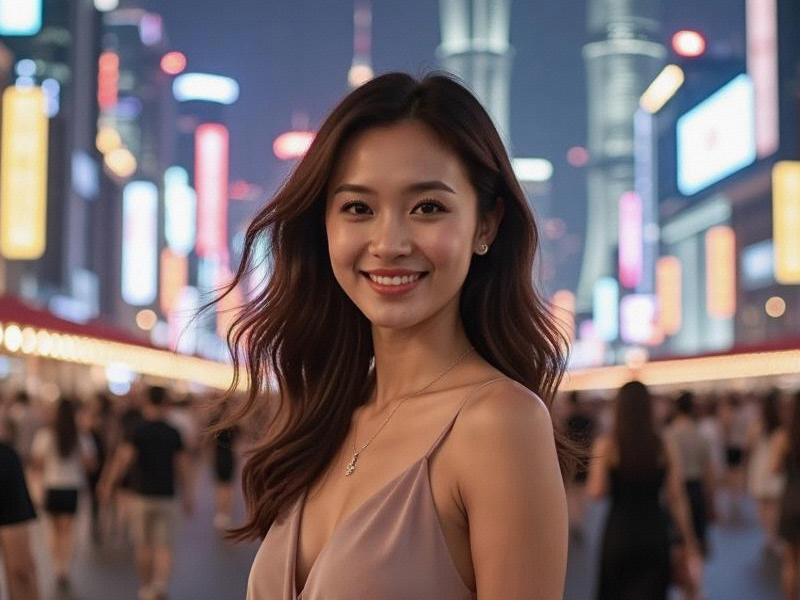This in-depth feature explores how Shanghai's women have created a new paradigm of urban femininity that blends Chinese tradition with global sophistication, setting trends across Asia.

The first rays of sunlight glint off the Huangpu River as Shanghai awakens to another day of quiet revolution. Along the Bund, a striking sight unfolds - young female executives in perfectly tailored suits stride purposefully toward gleaming skyscrapers, their confident footsteps echoing those of the 1920s "modern girls" who first challenged gender norms in this cosmopolitan city. In Xintiandi's chic cafés, female entrepreneurs discuss blockchain startups between sips of single-origin coffee, while in the French Concession, art students sketch avant-garde designs inspired by traditional Chinese motifs. This is the new face of Shanghai womanhood - equally graceful in a qipao or power suit, deeply rooted in tradition yet decidedly future-facing.
Dr. Zhang Meili, a leading sociologist at Fudan University, identifies three fundamental shifts in Shanghai's feminine ideal: "First, we're seeing the complete normalization of female leadership - our latest research shows 82% of Shanghai women aged 25-40 aspire to C-suite positions. Second, there's been a dramatic redefinition of beauty that values intelligence and capability as much as physical appearance. Third, we observe women using fashion strategically as professional armor rather than mere decoration."
The professional landscape reveals extraordinary progress. In Shanghai's financial sector, women now occupy 43% of senior roles - nearly triple the Asian average and surpassing many Western financial hubs. The city boasts China's highest concentration of female-led unicorn startups, particularly in cutting-edge fields like biomedicine and artificial intelligence. "Shanghai women don't wait for invitations to the table - we're building entirely new banquet halls," declares tech entrepreneur Rachel Wang, 31, whose AI company recently achieved a $5 billion valuation.
爱上海同城对对碰交友论坛
Fashion tells an equally compelling story. While international luxury brands remain popular, a new generation is championing homegrown designers like SHANG XIA and Uma Wang who blend Eastern aesthetics with contemporary silhouettes. The most anticipated event at Shanghai Fashion Week has become the "Power Dressing Symposium," where female executives demonstrate how sartorial choices impact career trajectories. "My presentation outfit costs more than my monthly rent because in Shanghai, personal branding is professional currency," explains venture capitalist Victoria Chen.
The beauty industry reflects these evolving standards. The coveted "Shanghai Glow" - achieved through meticulous skincare rather than heavy makeup - has become Asia's beauty gold standard. Leading dermatology clinics report a 320% increase in non-invasive treatments since 2023. "Today's clients want to look like the best version of themselves, not someone completely different," observes Dr. Liu of Luminous Dermatology. "The ideal is healthy radiance that suggests both vitality and wisdom."
上海贵族宝贝龙凤楼
The romantic landscape showcases further transformation. While marriage remains valued, Shanghai women are increasingly selective. Data from China's leading dating apps reveals local women initiate 47% more contacts than in other Chinese cities. "We're looking for partners, not providers," states corporate lawyer Grace Li, 34. "My grandmother married at 18, my mother at 23 - I'll marry when I find someone who respects my career as much as I respect his."
Education fuels this quiet revolution. At Shanghai's top universities, women now dominate business and STEM programs, comprising 61% of computer science graduates. The annual "Women in Tech Shanghai" conference attracts over 18,000 attendees, while female-founded coding academies are proliferating across the city. "Shanghai women aren't just breaking glass ceilings - we're redesigning the entire architectural blueprint," says Professor Hannah Xu during her keynote address.
上海花千坊龙凤
Cultural preservation plays a surprising role in this modernization. Young professionals are spearheading revivals of traditional crafts like embroidery and tea ceremony, often with contemporary twists. The "New Nüshu Collective" has reinvented the ancient women's secret script as feminist street art, while historical walking tours led by female scholars are among the city's most popular cultural offerings.
As neon lights begin their nightly dance along the Huangpu River, Shanghai's women continue redefining possibilities - in corner offices, art studios, research labs, and neighborhood wet markets. They represent a new Asian feminine ideal: women who honor tradition while boldly scripting their futures, their progress as dazzling and multifaceted as the city's iconic skyline. In Shanghai, femininity isn't a limitation - it's the ultimate competitive advantage in the 21st century.